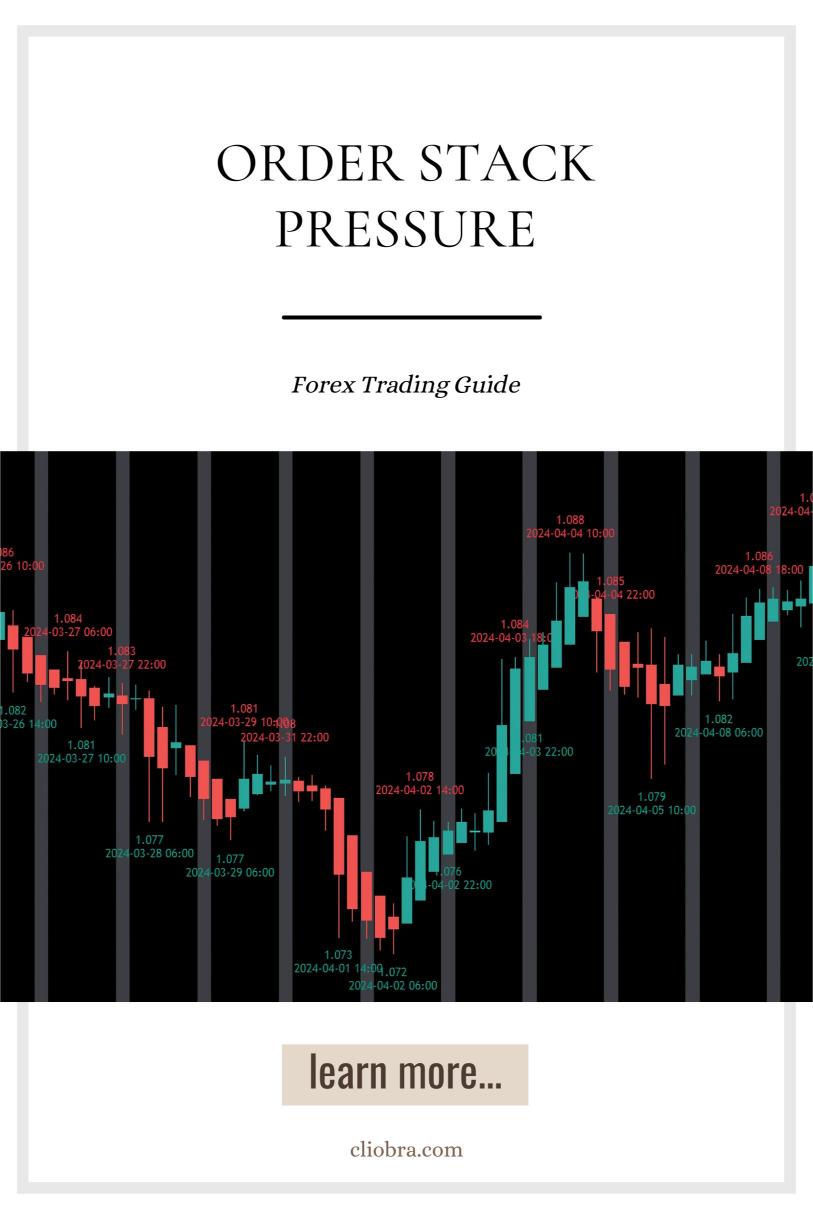Last Updated on February 14, 2025 by Arif Chowdhury
Ever felt like you’re trading in the dark?
You’re not alone.
Many traders struggle with understanding market dynamics.
One term that has been a game-changer for me is Order Stack Pressure.
Let’s break it down.
What is Order Stack Pressure?
In simple terms, it refers to the accumulation of buy or sell orders at certain price levels in the market.
When there’s a heavy stack of buy orders, it creates upward pressure on the price.
Conversely, a stack of sell orders pushes the price down.
Understanding this concept can help you make better trading decisions.
Why It Matters
- Market Sentiment: Order stack pressure reveals what traders are thinking. If you see a lot of buy orders, it suggests bullish sentiment.
- Price Reversals: Knowing where the pressure lies can help you predict potential reversals. It’s like having a roadmap.
- Risk Management: Identifying these pressure points can help you set better stop-loss orders, keeping your trading capital safe.
Statistics show that around 70% of traders fail because they don’t understand market dynamics. Don’t be part of that statistic!
How to Identify Order Stack Pressure
Analyze Order Books
Check out the order books provided by your trading platform.
Look for large clusters of orders at specific price levels.
Use Volume Indicators
Volume indicators can help you understand where the most trading activity is happening.
High volume at a price point often indicates order stack pressure.
Price Action Signals
Watch for price movements around these levels.
If the price bounces off a level with high order stack pressure, it’s likely to hold.
Combine with Technical Analysis
Use technical indicators like support and resistance levels to enhance your analysis.
The more data points you have, the better your decisions will be.
Trading Strategies Using Order Stack Pressure
Now that you know why it matters, let’s talk about how to trade it.
Breakout Trading
When the price breaks through a level with strong order stack pressure, it often leads to significant movement.
Position yourself early to capitalize on these breakouts.
Fade the Pressure
If you notice heavy sell orders at a resistance level, consider fading the pressure.
This means you’d bet against the price continuing to rise.
Set Smart Stop-Losses
Place your stop-loss orders just beyond the order stack pressure levels.
This way, you’re protected from sudden price movements.
My Trading Strategy
As a seasoned Forex trader since 2015, I’ve developed a unique approach to capitalize on these insights.
I’ve created a portfolio of 16 sophisticated trading bots that operate across major currency pairs like EUR/USD, GBP/USD, USD/CHF, and USD/JPY.
Each bot is meticulously designed to minimize risk while maximizing returns.
They’re strategically diversified, meaning they won’t all take a hit at the same time.
This multi-layered approach really helps in maintaining a stable trading portfolio.
You can check out my 16 trading bots portfolio here.
They’re completely FREE to use!
Best Practices for Trading with Order Stack Pressure
- Stay Informed: Keep an eye on economic news. Market sentiment can change quickly.
- Practice Patience: Don’t rush into trades. Wait for the right setup based on order stack pressure.
- Use Demo Accounts: Before going live, practice your strategies in a demo account to build confidence.
Conclusion
Understanding and trading with order stack pressure can elevate your Forex game.
It’s not just about placing trades; it’s about understanding the market pulse.
If you’re looking for reliable brokers to execute your trades, I’ve tested some of the best.
You can find them here: Most Trusted Forex Brokers.
Remember, the more informed you are, the more successful you’ll be in trading.
Don’t leave your success to chance—leverage the tools available and start trading smarter today.
